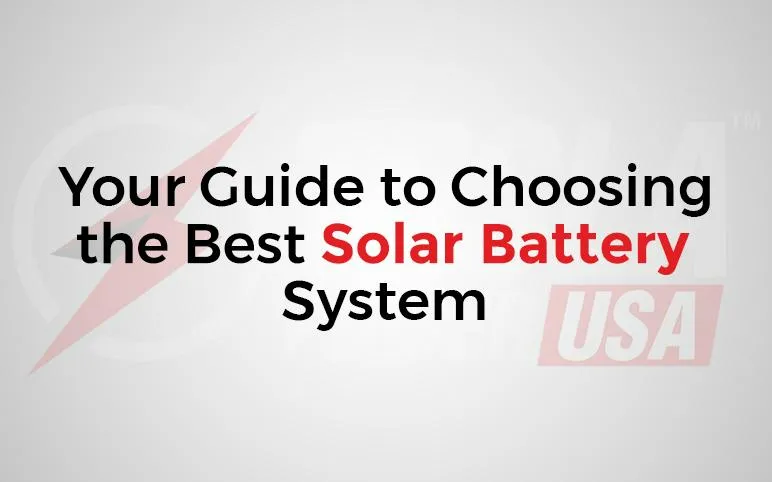Tips for Selecting the Best Solar Battery for Your Needs
Many homeowners and companies are switching to solar energy as it becomes more widely used and affordable in order to lessen their dependency on the grid and reduce their carbon footprint. The solar battery is a critical component of a solar energy system, however it is frequently disregarded. For use at night or during power outages, solar batteries are essential for storing extra solar energy produced during the day. It can be difficult to choose the best solar battery given the wide range of options on the market. The important aspects to take into account while choosing a solar battery that best meets your needs are outlined in this article.
- Calculate your energy needs.
To choose the best solar battery, you must first determine your needs for electricity. Determine how much energy you typically consume each day or each month. Think about things like how many electronics, lights, and appliances will be powered by the solar battery. This evaluation will assist you in determining the capacity (expressed in kWh) needed for your solar battery. Choose a battery that has the capacity to fulfill your energy requirements, making sure that it can supply power on overcast days or for extended periods when solar generation is low.
- Take Battery Chemistry into Account
Different chemistries of solar batteries exist, and each has benefits and drawbacks. Lead-acid, lithium-ion, and saltwater batteries are the three battery types that are most frequently used in solar energy systems. Compared to lithium-ion batteries, lead-acid batteries are less expensive but have a lower energy density and a shorter lifespan. On the other hand, lithium-ion batteries are generally more expensive but provide a higher energy density, a longer lifespan, and faster charging capabilities. A more recent option that is non-toxic and good to the environment is saltwater batteries. Think about the advantages and disadvantages of each battery chemistry before selecting one that fits your budget, energy needs, and sustainability objectives.
- Calculate battery depth of discharge and efficiency
When selecting a solar battery, depth of discharge (DoD) and battery efficiency are crucial considerations. Battery efficiency is the ability of the battery to efficiently transform and store energy. Less energy will be lost during charging and discharging cycles in batteries with higher efficiency. The term “DoD” refers to the maximum battery capacity that can be used without endangering the battery’s life. To maximize the useful capacity and ensure longer battery life, it is typically advised to select a battery with a higher DOD. To maximize the efficiency of your solar energy system, look for batteries with a deep DOD.
4.Evaluation of Battery Cycle Life
The number of charge and discharge cycles a battery can withstand before suffering a substantial loss in capacity is referred to as battery cycle life. It is an important issue to take into account because it has an immediate impact on the solar battery’s longevity and overall cost-effectiveness. Compared to lead-acid batteries, lithium-ion batteries typically have a longer cycle life. To ensure that batteries will survive for many years without needing to be replaced frequently, look for ones with a high cycle life rating.
- Bear Warranty and Safety in Mind
When selecting a solar battery for your house or company, safety must come first. Inbuilt safety features like overcharge protection, thermal management systems, and short circuit protection are things to look for in batteries. Also take into account the battery manufacturer’s guarantee. The manufacturer’s trust in the battery’s performance and endurance is indicated by a longer warranty duration.
Conclusion
For your solar energy system to provide the most benefits, choosing the correct solar battery is essential. You can make an informed choice that fits your demands and budget by taking into account aspects like your energy requirements, battery chemistry, efficiency, depth of discharge, cycle life, safety features, and warranty. Purchasing the appropriate solar battery can not only provide a trustworthy and effective energy storage solution but also help to reduce

